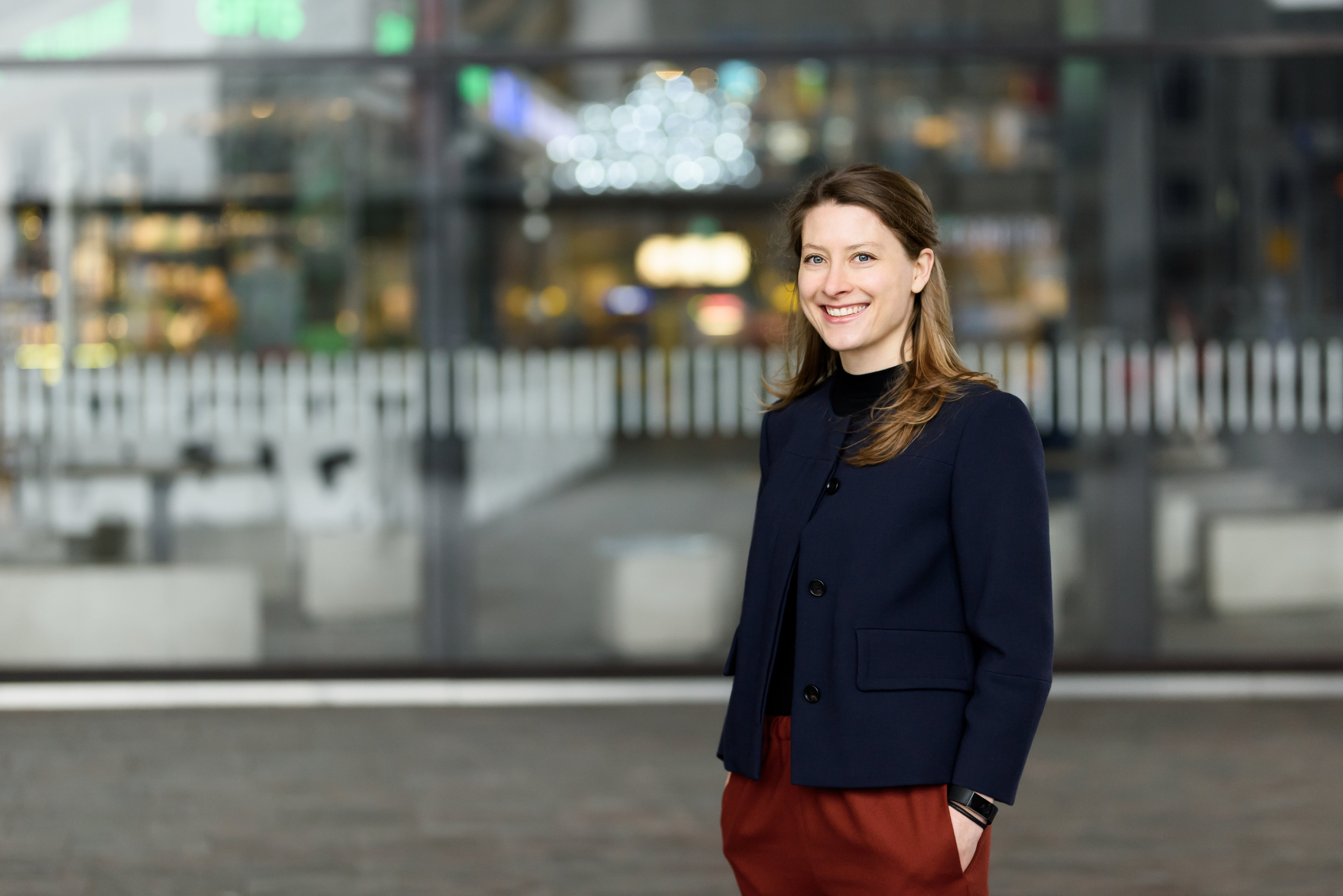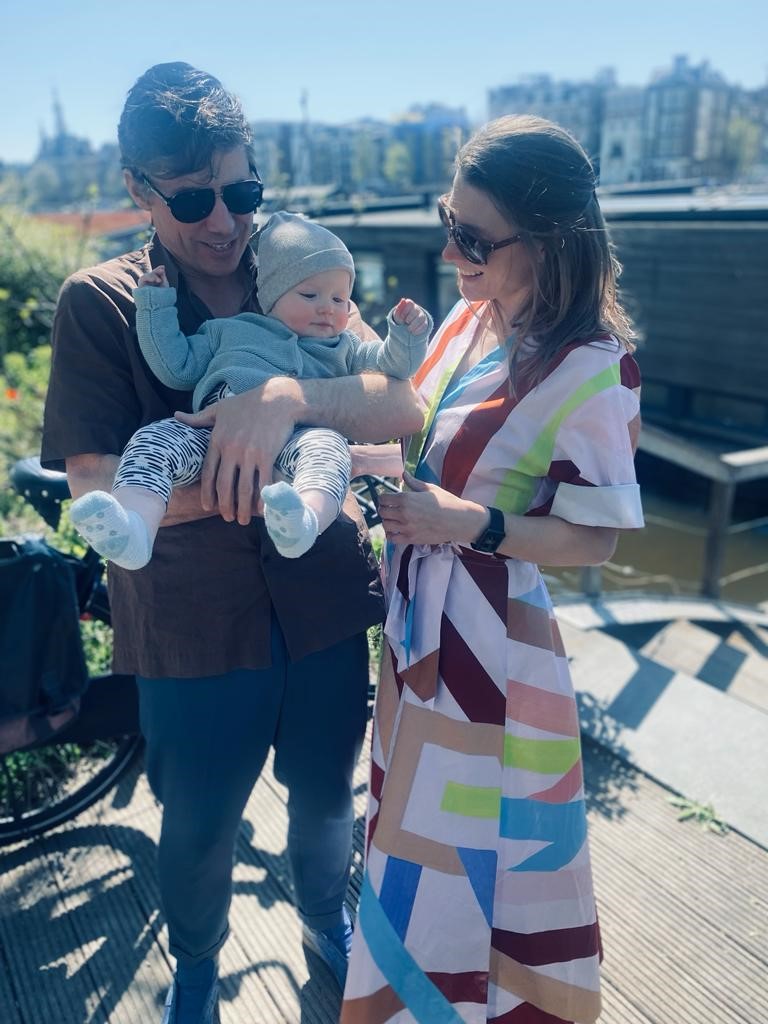Chandler Hatton: Transformative Technologies
As part of the PWN Global series of ‘Inspirational Stories’ that feature on our website and in our newsletters, we interviewed Chandler Elizabeth Hatton. Chandler was awarded a PWN membership through her involvement as an INSEAD Global Executive MBA alumnus.
To find out more about the INSEAD Global Executive MBA (GEMBA), click here. Chandler, thanks for taking the time to tell us your interesting story. Let’s start with your career:
 What gives me energy is collaborating to tackle meaningful, often technical, challenges. My career focus has been making transformative technologies available by developing simple products. Products that make people rethink the best way to get things done. I started off in renewable energy and now focus on socially relevant applications for computer vision and AI. What gives me energy is collaborating to tackle meaningful, often technical, challenges. My career focus has been making transformative technologies available by developing simple products. Products that make people rethink the best way to get things done. I started off in renewable energy and now focus on socially relevant applications for computer vision and AI.
Early on, I joined a startup that offered biogas systems to East African households in need of clean, affordable cooking fuel. As CTO, I oversaw engineering and in-house development of mass-producible biogas systems and related products. I also specified and commissioned a facility in Tanzania that housed the largest injection-moulding machine in the region, which we operated with a local partner.
Later, I took a role closer to home, developing strategic advice for an international portfolio of clients with Arthur D. Little. My consulting work focused two topics: innovation management and growth strategy.

When I went back to industry, I again joined a purpose-driven organisation in the role of CTO. Since 2019 I’ve been at ZiuZ, a tech company developing visual intelligence technology for healthcare & forensic applications. Our headquarters are in a town in the most northern province of the Netherlands, which by Dutch standards is an unthinkable distance from my home in Rotterdam. But not every organization is as playful, innovative and impactful as ZiuZ, and, of course, I wouldn’t be American if I couldn’t stomach a long drive.
At home in Rotterdam, I am also involved in small-scale, high-quality real estate development projects under the flag of Happycity. Our projects contribute to the realization of sustainable living environments and vital cities.
That’s a great professional CV – we’d love to better understand the educational background that enabled your professional career choices?
As an undergraduate, I studied at the Massachusetts Institute of Technology (MIT), where I received dual Bachelor of Science degrees in Mechanical Engineering and Architecture.
Upon graduating I joined a boutique design bureau in New York City, but shortly thereafter decided to go back to school to pursue a graduate degree in Industrial Design Engineering. I opted for a program that emphasized sustainability and manufacturability in a country known for design, which is how ended up at the TU Delft in the Netherlands.
Rotterdam has since become my home base, although my work has taken me all over the globe. I now speak Dutch at home with my partner and we are raising our daughter bilingually.
Your education pedigree with schools such as MIT and the TU Delft is impressive. So was studying with INSEAD, the “Rolls Royce” of executive education a natural next step?
With a background in engineering and a career at the intersection of technology and business strategy, INSEAD’s Global Executive MBA program was a great fit. The program provides a fast-track for working executives to master key business topics and enhance their leadership skills. For me, it also provided the opportunity to break free of the “technical expert” tag that, as a woman working in tech, I was grateful to be branded with early on in my career.
The GEMBA program is globally oriented with campuses in Europe, Asia the Middle East and North America, and it offers a curriculum optimized for the needs of business leaders in specific geographies, in my case Europe. The school has an outstanding alumni network and is consistently able to draw top-notch faculty and students. Moreover, the program’s focus on leadership development through coaching, peer sessions and experiential learning had a strong appeal.
From what you have described, it sounds like you are riding a successful professional wave. Tell us, what have been the main successes and challenges during your professional career ?
Having worked in innovation for product-based companies, many successes and challenges relate to product development and teamwork. An example that immediately comes to mind was the launch of the first biogas system my team engineered. The product faced both manufacturing and usability challenges and addressing these required extensive troubleshooting.
Initially, I thought my role as a trained engineer was to come up with technical fixes, but I quickly learned that instead my role was to listen, ask questions, encourage experimentation and keep everyone motivated when it didn’t work the first time, or even the fifth. As a young executive, the experience accelerated my transition from managing engineering to leading an organization.
Another challenge I’ve faced, and one that nearly everyone faces at some point in their career, is deciding when to leave. When do you stick with something that you’ve poured your heart into, and when do you embrace a new opportunity?
For me, career transitions have often been prompted by changes in my personal rather than professional life. Since my partner manages a Rotterdam-based architectural firm, considerations around location, travel and availability at home have always played a role.
At one career crossroads I received particularly salient advice: simplify decisions by focusing on the things that are currently on the table. Avoid getting caught up in scenarios, good or bad, that may or may not play out at some point down the line.
Alongside your professional work, do you take part in volunteer activities, and if yes why?
I’ve been a volunteer mentor to tech founders in the Amsterdam chapter of an international startup accelerator. I also mentor young professionals in the early stages of their careers and am often a guest speaker for university students.
Being a volunteer mentor and speaker is a great source of energy and inspiration. It’s rare that I step out of a volunteer setting not feeling lighter and more optimistic than I was when I stepped in. Recently, I was awarded a PWN membership and I am looking forward to seeing how I can benefit from and give back to this network.
What networks are you part of and how have they played a role in your professional development?
When it comes to networking, a lesson I picked up early on in my career is that building relationships is more important than expanding your network. At the time, I was working as an independent consultant during a recession. Project acquisition didn’t come easy. I dutifully turned up to networking events, but these were of little use in securing work. The projects that I landed arose through longer-standing relationships forged in other contexts. The realization was liberating.
These days I’m active in several networks, but I only attend events that pique my interest. When I am at an event, I focus on conversations that go beyond small talk.
Here at PWN, our readers love to hear about the age-old issue of work/life balance. When we interview high achievers, we’re always intrigued to hear how they achieve so much while balancing their life. Can you share your thoughts with us?
 The word “balance” suggests a carefully sought equilibrium. But life’s too unpredictable for that. I find that if what you’re doing suits you, then a high-precision balancing act simply isn’t necessary. I manage my work/life balance by ensuring that both my work and my life are fulfilling. The word “balance” suggests a carefully sought equilibrium. But life’s too unpredictable for that. I find that if what you’re doing suits you, then a high-precision balancing act simply isn’t necessary. I manage my work/life balance by ensuring that both my work and my life are fulfilling.
Aligning expectations with your business partners, spouse, kids, and anyone else in your life is important, especially during wobbly periods. As an example, I thought I had all my ducks in a row before departing for four months of maternity leave. But then my partner got the itch to remodel. We ended up moving out of our house just three days before I gave birth. Nearly two years later we’re still bivouacking in a temporary apartment with an ambitious renovation in the works whilst managing two careers. But we’re clear-eyed and things remain in balance, if in flux.
What are your three top tips for being a great leader?
There are so many combinations of things that can make a great leader. Elements that have been important for me include:
- Taking the time to really listen, with both openness and curiosity. A lot of complex situations become a whole lot clearer when people stop, listen and ask questions.
- Paying close attention to team dynamics. If you really understand your team, you will be able to motivate team members and make the team as impactful and efficient as possible.
- Not shying away from hard decisions. Mustering the courage to carve out a new path and having the resolve to make unpopular yet necessary changes are important skills when adapting to new challenges.
What’s your favourite self-help book/blog/YouTube channel/website?
I am less of a self-help book and more a professional magazine reader. Staying up to date on developments in the world, the economy, and technology is essential and at the same time a source of inspiration. My go-to titles are the MIT Technology Review and The Economist.
If there’s a new topic that I want to get familiar with, I tee up a few podcasts to listen to during a run or whilst traveling. I search for a handful of podcasts on a particular theme and listen at double speed to figure out which ones are worthwhile.
Any advice/recommendation you want to leave our members who wish to improve their leadership competencies?
To any reader wanting to improve their leadership competencies, I would say the following:
Get to know yourself. Pay attention to how you make decisions and why you have particular preferences. Ask for feedback as often as possible and listen to that feedback. Understanding your own strengths and weaknesses is key to cultivating effective working relationships and being a great leader.
On that note, also make sure you are giving honest feedback to the people around you. This can be scary at first, but there’s a technique to it and certainly not all your feedback should be critical. Ultimately feedback helps cultivate trust and greatly improves team performance.
Finally, stay curious and find space to learn, continuously.
If anyone reading this article is interested in connecting, you can find me on LinkedIn.
Date: April 2023
Author: Chandler Hatton
Interviewer: Rebecca Fountain, The Marketing Fountain |